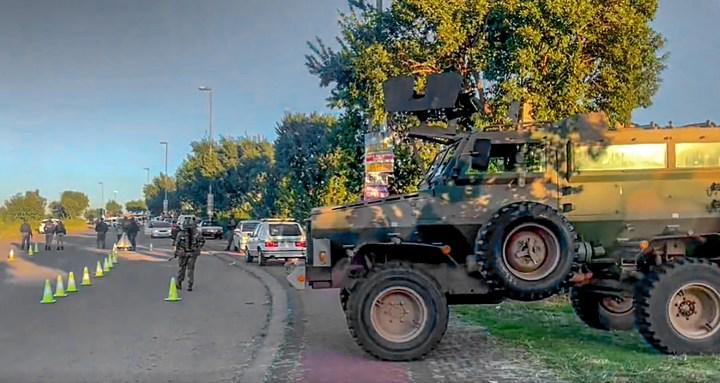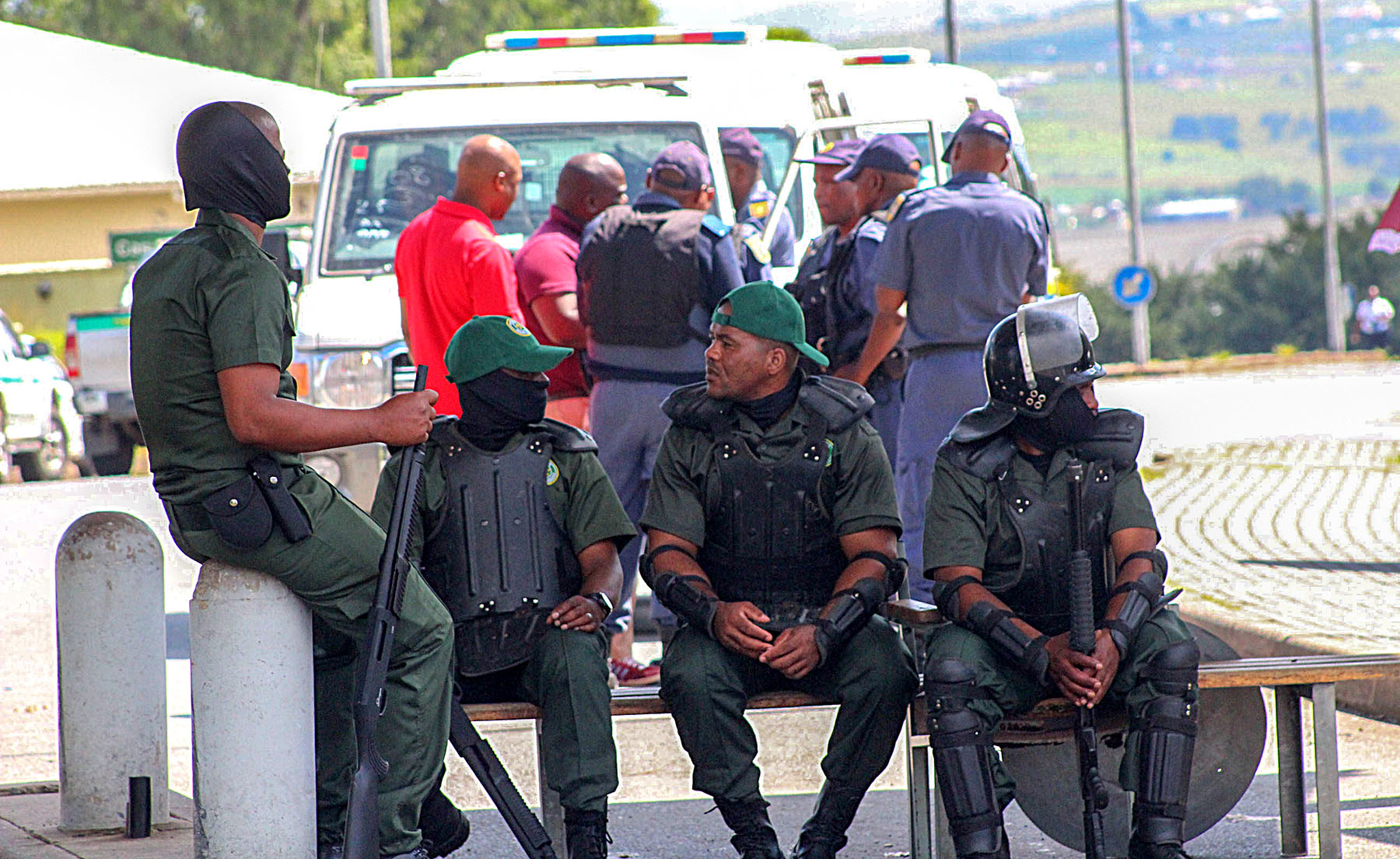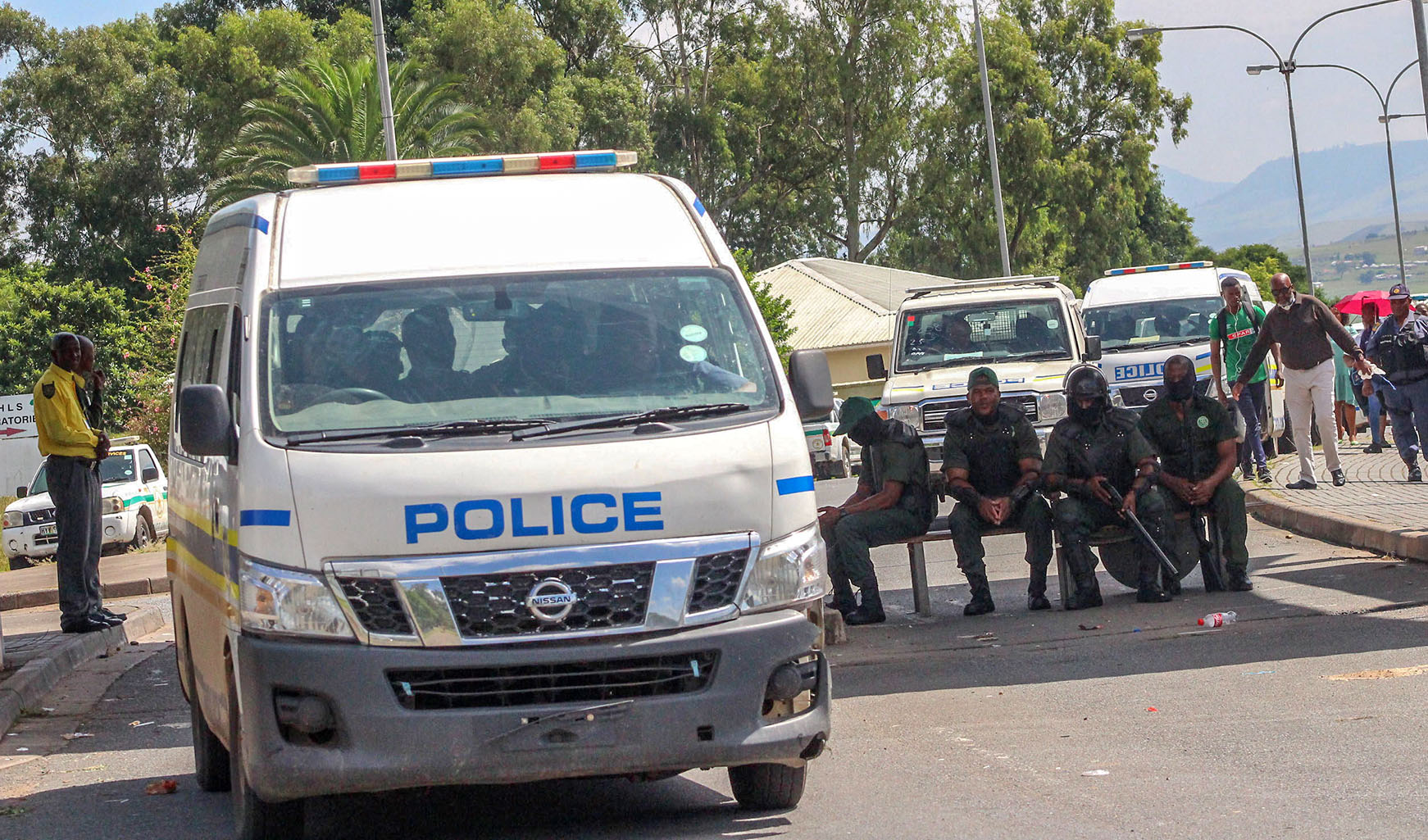DEATH STRIKE INTERDICT
Labour Appeal Court orders Nehawu to inform members of strike interdict or face legal consequences

The Labour Appeal Court has interdicted any further strike action from Nehawu, pending further legal action. In a hard-hitting judgment, the court ordered the Cosatu-affiliated union to make sure its members know about the interdict or face legal consequences. Nehawu agreed to suspend the strike for 72 hours to consult, though also stated they have a mandate to appeal this order. The SANDF has also confirmed that the army medical corps would be deployed to hospitals in crisis.
The court ordered that the union will be held responsible if word of the national interdict is not sufficiently distributed among its members. Several provincial interdicts are already in place. The South African Defence Force also confirmed that the army medical corps would be deployed to hospitals in crisis, after the National Department of Health asked for help, as hospitals are left with skeleton staff due to the ongoing Nehawu strike.
After delivering a scathing ruling against Nehawu and police inaction to stop the violence associated with the strike, the Labour Appeal Court this morning interdicted the ongoing public service strike until the finalisation of further legal proceedings.
The order allows for an interdict obtained by the government to stop the strike to be implemented. This will include a bar, with immediate effect, on any “strike action, picket, or any other form of industrial action by Nehawu, its members, and employees who are employed in an essential service (like the health sector).
Read in Daily Maverick: “Doctors fear more loss of life as health workers strike set to intensify on Monday”
“The strike action, picket, or any other form of industrial action by Nehawu is interdicted with immediate effect and Nehawu and all such employees are restrained and prevented from continuing with or participating in any such strike, picket or any other form of industrial action.”
“Nehawu is ordered to inform its members and officials and all persons to whom it had given notice of the strike in every province, including but not limited to every hospital and clinic in South Africa at which it has members within the essential services, of the order of this Court, through publication on social media, by email and by all other appropriate means available to it, by no later than 1 pm on Monday,” the order continues.
“The order we make carries with it a duty upon Nehawu to publicise this order widely, including to its members, at the pain of being found guilty of contempt. In the event that the union’s members are found to have flouted this order or deny any knowledge of it, it will fall to Nehawu to explain this failure,” the judges continued.

Nehawu members protest outside Bheki Mhlangeni Hospital on 8 March, 2023 in Soweto. The health workers’ union is demanding a 10% salary hike and the strike is at several hospitals around Johannesburg. (Photo: Gallo Images / Fani Mahuntsi)
Agreed to suspend strike for 72 hours
Nehawu agreed to suspend the strike for the next 72 hours to consult, but said they have received a mandate to appeal this order.
This comes as Nehawu lost their legal challenge against an interdict obtained by the Department of Public Service and Administration in the Labour Appeal court this morning.
Read in Daily Maverick: “Strikers admitted to Chris Hani Baragwanath Hospital after police open fire with rubber bullets”
In their ruling, the judges said there were “shocking reports of widespread strike misconduct and intimidation … which have resulted in unopposed interdictory relief being granted against Nehawu and its members in most provinces… Such conduct is not only illegal, but wholly unjustified and unwarranted.
“A more deplorable approach, with the gravest and, in some instances it appears, deadly consequences, was the approach of Nehawu to the strike by its members employed in essential services. In this regard, the union and its members illustrated a flagrant disregard for the law, the employer, and the people of this country entitled to access essential public services.
“Despite being called upon to confirm that the union ‘will actively ensure that members rendering essential services will not participate in the strike’, Nehawu failed expressly to confirm as much and stated only that it was ‘alive to the limitations of the right to strike’. Nehawu’s response was patently deficient, given the seriousness of the risk that its members employed in essential services would strike on the basis of the wide scope of the notice given by Nehawu.
“The only conclusion which can be drawn from Nehawu’s conduct in this regard is that, well aware that the strike notice did not expressly exclude essential services and that a strike by such employees was in breach of the law, the union nevertheless was content simply to let the situation unfold and make limited efforts, if at all, to prevent this. Had it sought to halt a strike by essential services workers, it would have taken immediate, drastic and unequivocal action to do so. It did not, and for this, the union and its members in such essential services must ultimately bear responsibility, which is found to lie at their doorstep. There can be little doubt that this breach of the law, one acknowledged by the union, provided the exceptional circumstances and the irreparable harm to the employer (and none to the union) as contemplated in [the law],” the judges concluded.

Security guards in the Nelson Mandela Hospital entrance preventing any health workers to enter the premises on 9 March. (Photo: Hoseya Jubase)
Country cost of R36bn
In papers before the court, the government argues that the strike demands, if fulfilled, will cost the country R36-billion, and the government is unable to pay that.
“No budget was approved or voted on to fund the demands,” the judgment reads, summarising the government’s stance. “There is no funding to pay for the demands. National Treasury (as is required by law) will not approve the demands if there are no funds to pay for them.”
The court also heard the argument that Nehawu knew that the government was not able to make a higher offer. “There was no time, budget, or funds left for meaningful engagements. The strike is destructive of the negotiations and collective bargaining over the 2023/24 period and is “not conducive to the speedy resolution of the dispute and orderly collective bargaining.”
Nehawu’s legal team argued that “at best” for the State, the strike was unprotected, only to the extent that the strike notice was defective in that it did not exclude essential services … In interdicting the entire strike, the employees’ right to strike in the rest of the public service was impermissibly eroded.”
They asked that the interdict only stands with regards to essential services.
A supplementary affidavit deposed by the Chief Negotiator of the State at the DPSA, provided details of the shutdown of hospitals countrywide including the death of newborns, the prevention of oxygen deliveries, and failure to provide acute care including anti-venom to a snakebite victim.
“This is a grave situation and worsening, with the risk of a countrywide health crisis ensuing,” the judges continued.
The affidavit further highlighted the physical assault of staff attempting to work, and the forcible removal of striking workers from their posts.
It also highlights the harm suffered by “unquantifiable numbers of patients unable to access healthcare required”.
______________________________
Visit Daily Maverick’s home page for more news, analysis and investigations
______________________________
Nehawu denies that it called on essential services personnel to strike. The union stated that it did not condone the fact that “several essential services
employees joined the strike” and that on 8 March, 2023, its General Secretary instructed its leadership “to discourage all members of Nehawu, employed within essential services, from participating in the strike”.

Police vehicles and security guards at the entrance of Nelson Mandela Academic Hospital and Mthatha General Hospital on 9 March, 2023. (Photo: Hoseya Jubase)
SAPS inaction
“It is perhaps appropriate to note that the inaction of the SAPS in the face of criminal behaviour is extraordinary. It has become commonplace for the SAPS to walk away from scenes of criminal behaviour in a strike context, calling it a private or civil matter. Criminal conduct is neither
private, nor a civil matter. The SAPS are obliged to maintain law and order. It is their duty to act to enforce the law, and not to await a court to order them to do so,” the judges stated further.
The South African National Defence Force has confirmed that the army medical corps will be sent in to assist hospitals after a request from the Minister of Health, Dr Joe Phaahla.
The military medical corps were deployed to help in hospitals during the height of the Covid-19 pandemic. During a long health sector strike in 2010, the corps were also deployed to assist in hospitals. DM/MC


















 Become an Insider
Become an Insider
Why are we not surprised that the hopeless and corrupt SAPS under showman and all round stupid guy Cele have failed to deal properly with the strikers.
It is time that the union leaders be held personally responsible and accountable for any deaths, injuries to citizens and damage to property. While unions have the right to strike, they do not have a mandate or the right to cause damage to property or death and injuries to others. Once again all points to a weak government that is incapable of running a country.
South Africa is one of a few countries where such reprehensible behaviour is considered acceptable by the authorities and where the ministers of law and order are so weak and incompetent they ignore the appalling behaviour of strikers. In civilised countries the most strikers do is picket, push and shove, they don’t behave like the local brutes who burn, intimidate, assault, loot and destroy. SA has the distinction of being home to a population of strikers who are so savage they feel it acceptable to attack ambulances with pangas, whip doctors and nurses, burn tyres, barricade streets and assault innocent people all the while behaving like primitives with their singing and dancing while people are dying. How is one expected to respect people whose behaviour is barbaric ?